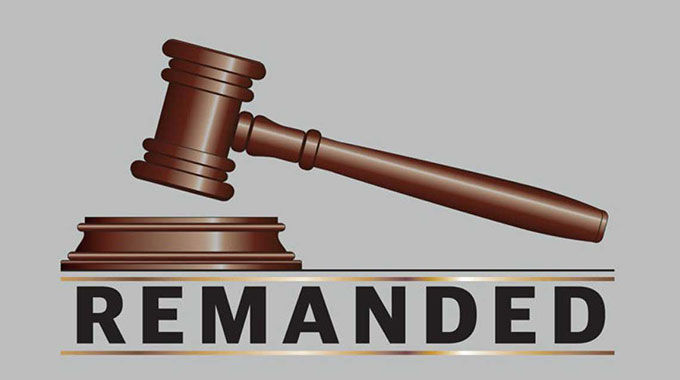Zimbabwe generates 1,65 million tonnes of waste annually

Thupeyo Muleya, Beitbridge Bureau
THE Environmental Management Agency (EMA) has called on Zimbabweans to pool resources and share ideas on how to address challenges relating to solid waste management which has become a perennial headache.
The agency’s officer responsible for environment and education, Ms Amkela Sidange, said yesterday that Zimbabwe generates an estimated 1,65 million tonnes of waste annually.
She said 90 percent of the waste was either reusable, recyclable or biodegradable, meaning only 10 percent of waste generated in the country is destined for landfilling.
Ms Sidange said there was a strong need for Zimbabweans to commit themselves to keeping a clean and safe environment.
“There are however waste streams that have remained a challenge in the country as they continue to accumulate in the environment as residual waste.
“These include plastics which contributes 18 percent of the total waste generated on an annual basis and this translates to an estimated 300 tonnes of plastic accumulating in the environment,” she said.
Ms Sidange said since plastic is a light matter, 300 tonnes of residual plastic waste occupy a large space in the environment resulting in land pollution hence the thrust to reduce plastic waste.
She said another problematic stream is sanitary waste which comprises four percent of waste generated in urban areas annually.
Sanitary waste comprises mostly the problematic disposable nappies.
Ms Sidange said diapers make up a larger component of waste in illegal dumps mostly in urban areas and along highways.
These, she said, were often scattered around by marauding dogs, found freely floating in water bodies especially after the rains.
Ms Sidange said since diapers contain human waste, they are unfortunately avoided during cleaning up.
She said since these were neither biodegradable nor recyclable, they stayed long in the environment as pollution.
“Another challenge is that diapers have no cradle to grave management system thus lacking the disposal method or end of use management, which in normal circumstances should be defined at point of manufacturing to exhibit extended producer responsibility, which shows concern towards proper management of post-consumer waste.
“As such diapers like any other problematic waste stream, need to be dealt with inclusively by all Zimbabweans to find a lasting solution,” said Ms Sidange.
She said both manufacturers and end users of some of the project increasing solid must adopt best management practices to reduce accumulation of residual waste in the environment.
Ms Sidange said it was important to find a sustainable management system that requires action and activities premised on enablers such as education and awareness, end user engagement, technology, effective regulatory framework, efficient waste collection, research and development to find lasting solutions.
“We are committed to reducing pollution and protecting the environment through promptly raising the flag when the integrity of the environment is likely to be compromised and timeously guide the nation through inclusive participation in finding lasting solutions to environmental problems.
“This include adopting best practices to rectify a problem such as identifying post-consumer management strategies.
“For instance, educating mothers on proper handling of diapers, causing for innovations towards recyclable diapers or going back to the basics of cloth napkins,” she said.










Comments